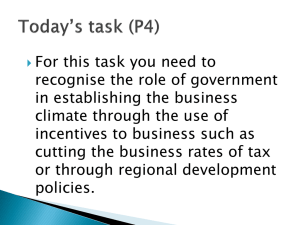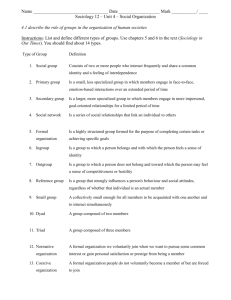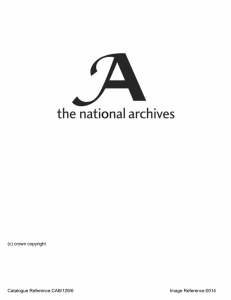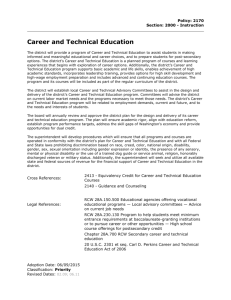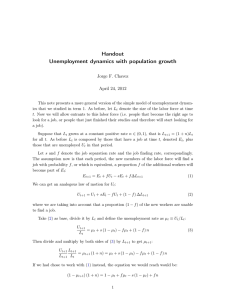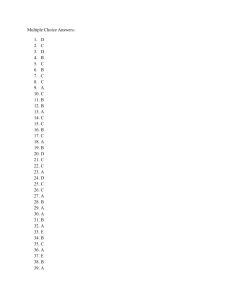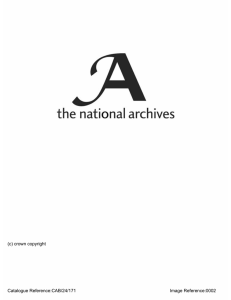Washington Supreme Court Holds That Quit Are Not Exclusive, Further Opening
advertisement
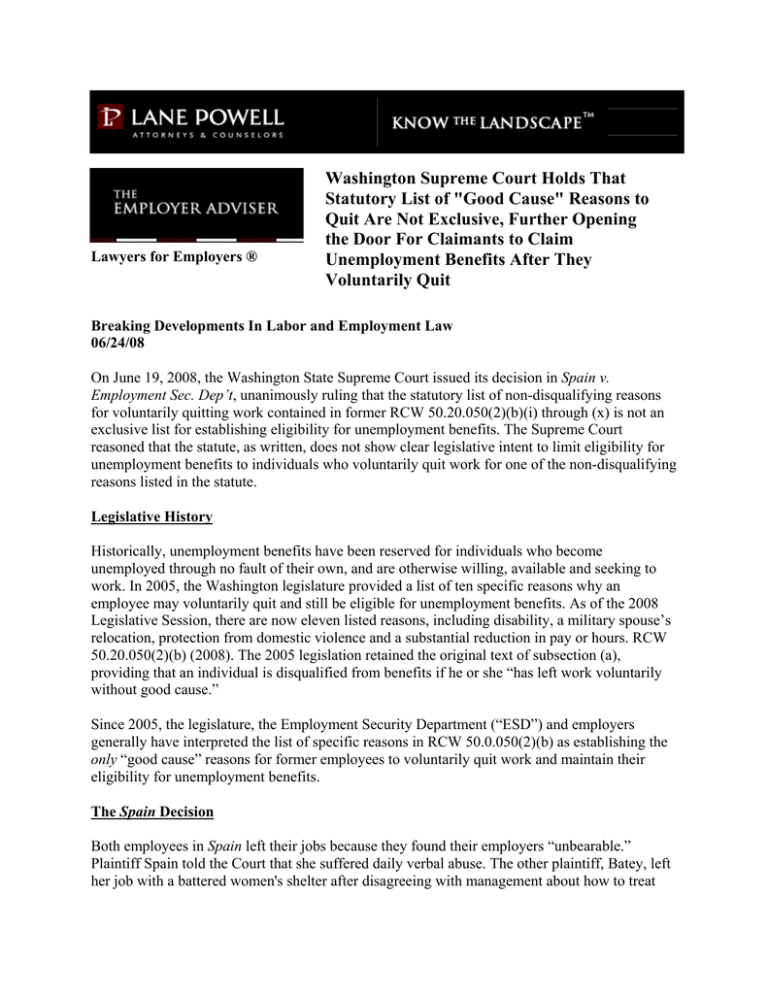
Lawyers for Employers ® Washington Supreme Court Holds That Statutory List of "Good Cause" Reasons to Quit Are Not Exclusive, Further Opening the Door For Claimants to Claim Unemployment Benefits After They Voluntarily Quit Breaking Developments In Labor and Employment Law 06/24/08 On June 19, 2008, the Washington State Supreme Court issued its decision in Spain v. Employment Sec. Dep’t, unanimously ruling that the statutory list of non-disqualifying reasons for voluntarily quitting work contained in former RCW 50.20.050(2)(b)(i) through (x) is not an exclusive list for establishing eligibility for unemployment benefits. The Supreme Court reasoned that the statute, as written, does not show clear legislative intent to limit eligibility for unemployment benefits to individuals who voluntarily quit work for one of the non-disqualifying reasons listed in the statute. Legislative History Historically, unemployment benefits have been reserved for individuals who become unemployed through no fault of their own, and are otherwise willing, available and seeking to work. In 2005, the Washington legislature provided a list of ten specific reasons why an employee may voluntarily quit and still be eligible for unemployment benefits. As of the 2008 Legislative Session, there are now eleven listed reasons, including disability, a military spouse’s relocation, protection from domestic violence and a substantial reduction in pay or hours. RCW 50.20.050(2)(b) (2008). The 2005 legislation retained the original text of subsection (a), providing that an individual is disqualified from benefits if he or she “has left work voluntarily without good cause.” Since 2005, the legislature, the Employment Security Department (“ESD”) and employers generally have interpreted the list of specific reasons in RCW 50.0.050(2)(b) as establishing the only “good cause” reasons for former employees to voluntarily quit work and maintain their eligibility for unemployment benefits. The Spain Decision Both employees in Spain left their jobs because they found their employers “unbearable.” Plaintiff Spain told the Court that she suffered daily verbal abuse. The other plaintiff, Batey, left her job with a battered women's shelter after disagreeing with management about how to treat clients. In both cases, the ESD denied unemployment benefits after concluding that neither of the two employees had left her employment for any of the non-disqualifying reasons listed in former RCW 50.20.050(2)(b). Both employees appealed. Before the Supreme Court, the employees argued that by the statute's plain terms, there are still two categories of good cause: (1) a broad undefined category established by former RCW 50.20.050(2)(a) (“An individual shall be disqualified from benefits beginning with the first day of the calendar week in which he or she has left work voluntarily without good cause”); and (2) a series of narrower categories defined by the reasons listed in former RCW 50.20.050(2)(b)(i)(x). In opposition, the ESD argued that, by the statute's plain terms, “good cause” to leave work, while retaining unemployment benefits eligibility, is restricted to the specific, non-disqualifying reasons listed in former RCW 50.20.050(2)(b)(i)through (x). The Court found that both approaches to interpreting the statute were “tenable interpretations” and that the statute was ambiguous, requiring the Court to look for evidence of legislative intent. Tracing the history of the various versions of RCW 50.20.050 since 1937, culminating in the amended language before it, the Court concluded that “the legislature did not intend to create an exclusive list of good cause reasons to voluntarily quit.” The Court rejected arguments by the Association of Washington Business (“AWB”) that an exclusive list was “the finishing stroke of a multi-year public policy compromise between business and labor over the nature of the Unemployment Insurance system...” and observed that, while the AWB’s conclusion might be correct, there was no evidence of that legislative intent in the legislative history presented to the Court. Accordingly, the Court agreed with the employees that RCW 50.20.050 provides two alternative methods of proving eligibility — one under the list of specific reasons in former subsection (b) and the other under former subsection (a), which allow employees to prove that they left work voluntarily with “good cause.” What this Means for Employers This decision could have a significant impact on employers. Arguably, the Supreme Court’s decision in Spain opens the door to an unlimited number of reasons that would constitute “good cause” for voluntarily quitting work. Employers should carefully consider whether to contest unemployment benefits and consult counsel when a former employee seeks benefits based on a claim of “good cause to voluntarily quit.” For more information, please contact the Labor and Employment Law Practice Group at Lane Powell: 206.223.7000 Seattle 503.778.2100 Portland employlaw@lanepowell.com 2 www.lanepowell.com We provide Employer Adviser as a service to our clients, colleagues and friends. It is intended to be a source of general information, not an opinion or legal advice on any specific situation, and does not create an attorney-client relationship with our readers. If you would like more information regarding whether we may assist you in any particular matter, please contact one of our lawyers, using care not to provide us any confidential information until we have notified you in writing that there are no conflicts of interest and that we have agreed to represent you on the specific matter that is the subject of your inquiry. Copyright © 2008 Lane Powell PC Seattle - Portland - Anchorage - Olympia - Tacoma - London 3

